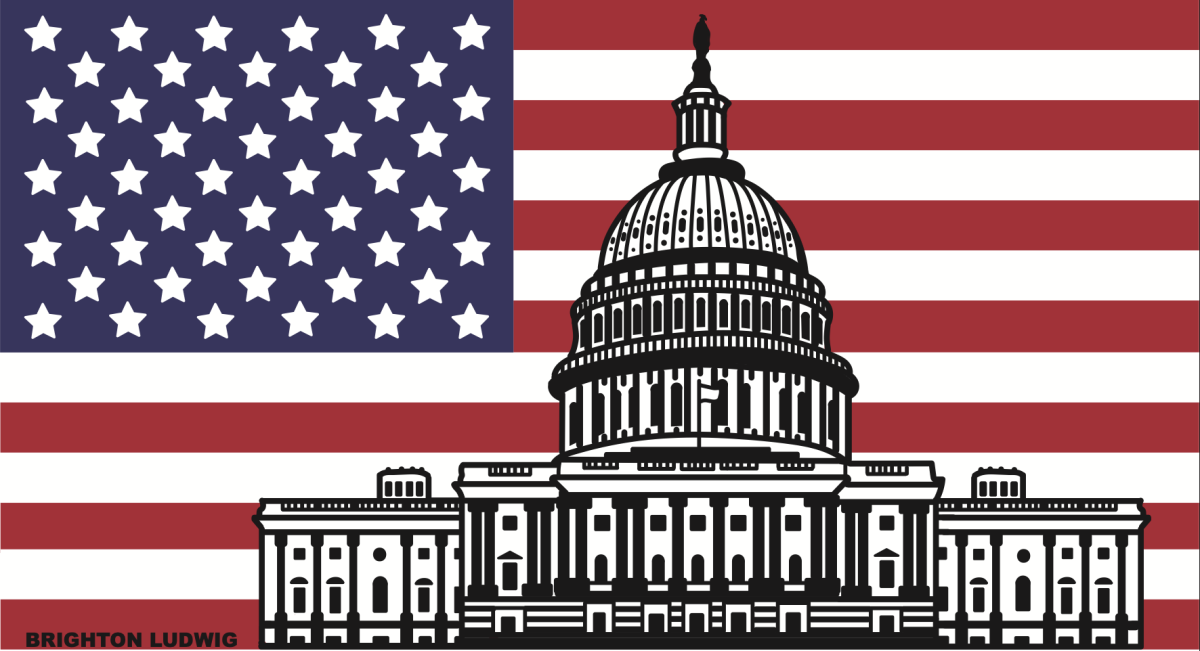The recent federal trials of former President Donald Trump have garnered significant public interest. And although there is much speculation on the outcome of the trials, there is only one decision which is significantly more clear-cut than the others: to uphold the rulings that bar Trump from the 2024 ballot.
Our national government was formed with the intent that all levels of government ought to represent the interests of the people; by extension, political officials ought to be held to the same standards of justice and accountability as any citizen would be. In particular, the judicial branch of the government was charged with holding officials responsible when their actions amounted to a breach of constitutional law. And this system, which prioritizes intrinsic responsibility and legitimacy, has retained its regulatory strength: former President Trump is being held liable for his illegitimate actions while in office through a series of court rulings. He now faces a combined 91 federal and state felony charges – that’s right, ninety-one, across four indictments. The felony counts provide confidence that the fundamental principles of our democracy still remain vigorous despite his efforts to undermine them.
One of the most recent consequences, and perhaps also the most striking, has been the Colorado Supreme Court’s decision to bar Trump from the 2024 ballot. The ruling cited “substantial enough” evidence to invoke Section 3 of the Fourteenth Amendment; this amendment was passed in the wake of the Civil War to promote political unity and public trust. It bars any public officer or representative who contributed to an “insurrection or rebellion” against government institutions from seeking to hold office due to the unconstitutionality of their actions. Maine’s Secretary of State shortly followed suit, effectively utilizing the same argumentative framework and constitutional precedent to justify barring Trump from the ballot.
Yet, Trump is attempting to skew the judicial system in his favor: his lawyers petitioned to the Supreme Court on January 18 in an effort to reverse the decisions. The petition argued that Trump’s choice of rhetoric during the January 6 Capitol riot as well as his efforts to undermine and influence the results of the 2020 election did not explicitly constitute an act of civil disobedience. The case will be heard by the US Supreme Court, and a decision is anticipated by early March. If the Court upholds the Colorado and Maine rulings, it sets a judicial precedent for many other states to follow suit, thereby effectively rendering Trump’s reelection unviable. Voting issues for the justices will likely center around the extent to which the broader definition of insurrection ought to be applied when in the context of the actions of a president.
Although I believe the definition adopted in the Colorado ruling ought to be sufficient for the prosecution, concerns abound regarding the unpredictability of decisions in a divided Court with a 6-3 conservative majority. The Court has historically lived up to its longtime reputation of upholding the ideals embodied in our founding documents by using extensive historical precedent to make decisions while also utilizing modifications in their interpretation based on current developments. In this regard, the court ought to be the sole defender of the Constitution when all else fails. However, our current Supreme Court contains an extremely corrupt justice, who explicitly breached government regulations, as well as a justice with severe misconduct allegations; additionally, its further politicization in research years has undermined the public’s confidence in the Court’s decisions and its ability to function as an objective, analytical government institution. The Court’s recent tendencies have erred on the side of the conservative agenda, especially in partisan issues such as abortion rights in the landmark decision of Dobbs v. Jackson Women’s Health Organization. Consequently the decision on the appeal of the Colorado case is unpredictable at best, yet increasingly conservative justices will likely lean towards an effective Trump pardon.
Nonetheless, I hope that the Court will revive its reputation for upholding core principles and thereby uphold the Colorado decision, as Trump’s actions clearly constitute not one, but several, breaches of the moral foundations of our democracy that are embodied in our Constitution. It is difficult to overemphasize this blatant violation of our government’s ideals by an individual who had sworn to uphold them. Some may argue that prosecuting an official without allowing voters to decide on his fate is simply unfair. Critically, however, these specific court cases are not fundamentally partisan. Instead, they are simply ramifications of efforts to preserve the pillars of our democracy by combating those who seek to turn them into rubble. Consequently, there is no reason why the Supreme Court should ever reject the Colorado or Maine rulings. There have been few other cases in which a Supreme Court decision is more evident, provided the members of the Court use adequate prudence. Yet if the Court does choose to bail Trump out and reverse the state-level rulings, all semblance of trust in the ability of our federal government institutions to carry out their responsibilities will have disappeared. Thus, the Supreme Court now has a choice: to drive us on a path toward recovery from the Trump Era, or to pardon him and thereby imperil democratic foundations. We can only hope that they pick the former.















Bryce Baker • Feb 7, 2024 at 9:58 am
I agree with you, they ought to remove him from the ballot. Although I easily see why this make’s people uncomfortable–especially Trump supporters–and feels undemocratic, I feel it’s important to reframe it as protecting a democratic position from someone who tried to utterly undermine said position. Section three of the 14th amendment should be seen in the same way as the age or citizenship requirements: if you don’t meet the requirement, you can’t run. End of story.
Also, in regards to the current Supreme Court makeup, that certain corrupt justice also has severe misconduct allegations. Ask Anita Hill, lol.